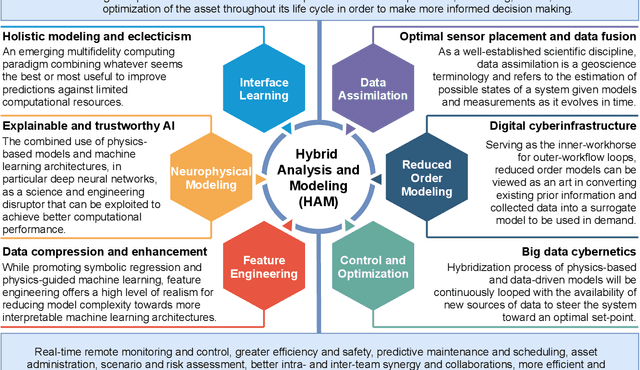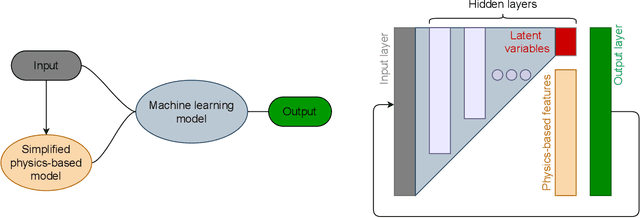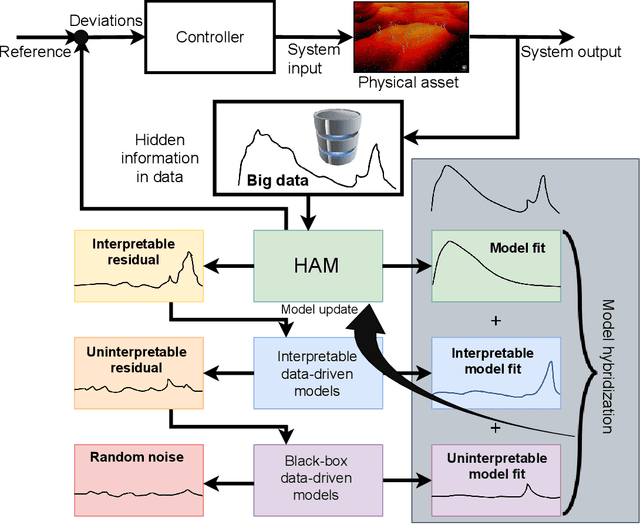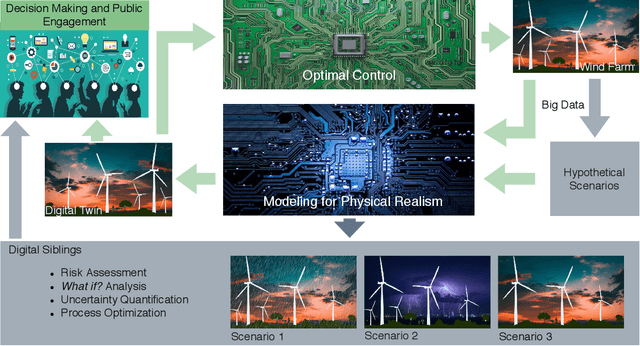Hybrid analysis and modeling, eclecticism, and multifidelity computing toward digital twin revolution
Paper and Code
Mar 26, 2021



Most modeling approaches lie in either of the two categories: physics-based or data-driven. Recently, a third approach which is a combination of these deterministic and statistical models is emerging for scientific applications. To leverage these developments, our aim in this perspective paper is centered around exploring numerous principle concepts to address the challenges of (i) trustworthiness and generalizability in developing data-driven models to shed light on understanding the fundamental trade-offs in their accuracy and efficiency, and (ii) seamless integration of interface learning and multifidelity coupling approaches that transfer and represent information between different entities, particularly when different scales are governed by different physics, each operating on a different level of abstraction. Addressing these challenges could enable the revolution of digital twin technologies for scientific and engineering applications.
 Add to Chrome
Add to Chrome Add to Firefox
Add to Firefox Add to Edge
Add to Edge